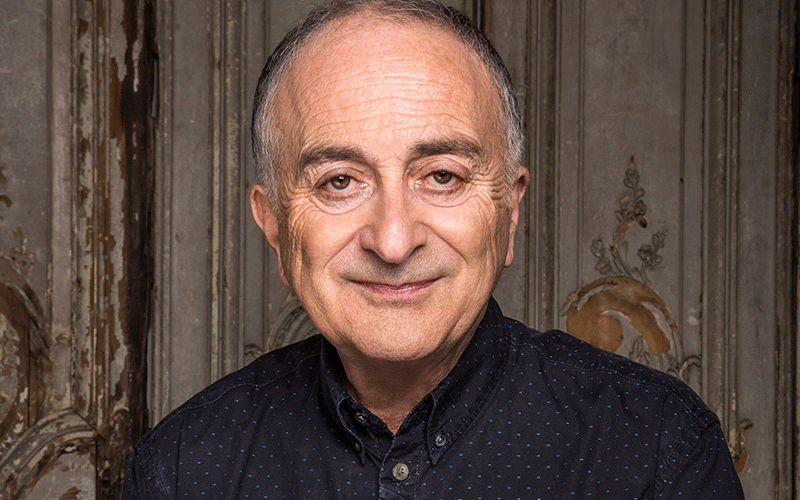Transform perceptions of social care recruitment

Sarah Beresford talks to actor Sir Tony Robinson to discuss the issues surrounding social care and how to improve the perception of caring as a career and as a valued profession.
If there’s someone who knows from first-hand experience the short-comings of the social care system, it’s comedian, actor, author and outspoken ambassador for the Alzheimer’s Society Sir Tony Robinson. After losing both his parents to dementia, Robinson became vocal on the need to transform the social care industry.
How do you recruit for an industry where the hours are long and pay is low?
If you work in social care, there are often long hours, limited paid-for breaks, and for many low pay. In fact, some carers, looking after people with dementia or mental health problems or learning disabilities (like eating disorders and autism) can be paid little more than someone who works stacking shelves. And due to Covid, as soon as everything started opening up again, some locations have reportedly seen an increase in rates for staff working in other industries like hospitality, meaning that recruiters of carers and those that work in social care have even more to compete with.
Robinson points to one problem being that we need to change perceptions of social care, as Robinson says, from “skivvy” to “professional carer”.
“I remember a time when teachers were just twits with leather at their elbows and chalk dust on their fingertips. There came a time when the teaching union said we’re not going to swallow this anymore. What we do is amazing and we are going to show people how amazing it is and we are going to break government perspectives.
“And really within five years or so, teaching became a ‘profession’ rather than just something that nerdy people do. And the same thing happened with nurses, and with people working in the fire service. It simply hasn’t happened in care.
“Care is what skivvies do. And if that’s shocking, I use that word advisedly. I think that’s how it’s perceived. I don’t mean it to sound insulting. It’s about cleaning up sick and wee, and it’s unpleasant, and ‘I’ (ie. any of us) wouldn’t want to do it. And as long as that’s the case, there’s no career path for carers – no training, no respect; we don’t have a chance of changing things. We need to look at it as a war – a war we can enjoy fighting, a war against ignorance, complacency and fear.”
So we need to change perceptions, but what should a social care system look like?
The wind of change is with us, with a new drug approved this week in the US to treat symptoms of Alzheimer’s, there’s increased focus on the social care system and the government’s commitment to fixing it. After the severe impact of Covid on nursing homes, Robinson feels that now is a golden opportunity to promote change. Now, as he puts it, is “pay-back time...”.
He explains: “Now we ought to be saying, this is as important as Covid. Age Alzheimer’s kills that many people every year. So we cannot say we can’t afford this any longer – which is what politicians say, because we have seen that when we mobilise people sufficiently, you can afford these things…
“We need a strategy; it’s not down to one government department. It’s down to all of us to say care workers have got to be respected, care workers have got to be paid properly and care workers have got to have a career path. And we’ve all got to be saying that. Let’s find a care version of the ‘Me too’ campaign. Let’s make sure it’s a genuine election issue. Let’s do so in such a way that every potential government is tied into improvements.”
But as with everything, change comes at a cost...
Change in social care will require a fundamental shift in government culture to recognise social care as a profession and backing it up with a robust financial commitment. As Robinson points out: “There is no doubt in my mind that the financial imperative is above all others... We can’t pretend that we will have the care system we need without a huge injection of cash. Training costs. As soon as you take the right people out of an industry to train them, you’ve got to get really smart, well experienced other people in to tackle what they used to do.
Being a carer isn’t easy – fact. And that’s why there are high levels of churn. Sometimes new recruits don’t get past the first base and the induction. Recruiters and resourcers are faced with a high volume of roles that are challenging to fill. An ‘injection’ of cash and enhanced pay terms introduced by governmental-backed schemes would go a long way to alleviate this.
• Sir Tony Robinson initially found fame as Baldrick in the TV comedy series Blackadder in the 1980s, working alongside actors such as Rowan Atkinson, Stephen Fry and Hugh Laurie, and also became known for his documentaries, such as Time Team, and children’s books.
• Sarah Beresford is the research director at digital recruitment organisation Crooton.
• Comment below on this story. Or let us know what you think by emailing us at [email protected] or tweet us to tell us your thoughts or share this story with a friend.
